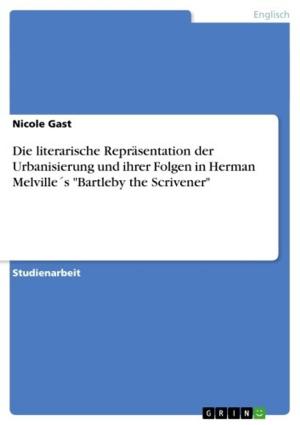Words in the Mind: the Mental Lexicon
General information about the Mental Lexicon and how it can assist in teaching vocabulary
Nonfiction, Entertainment, Drama, Anthologies| Author: | Ulrike Miske | ISBN: | 9783640169429 |
| Publisher: | GRIN Verlag | Publication: | September 17, 2008 |
| Imprint: | GRIN Verlag | Language: | English |
| Author: | Ulrike Miske |
| ISBN: | 9783640169429 |
| Publisher: | GRIN Verlag |
| Publication: | September 17, 2008 |
| Imprint: | GRIN Verlag |
| Language: | English |
Seminar paper from the year 2005 in the subject English Language and Literature Studies - Linguistics, grade: 1,3, University of Paderborn, course: Vocabulary Teaching, 13 entries in the bibliography, language: English, abstract: Words are considered the basis - possibly the most important factor - when learning a new language. In order to make yourself understood, it is essential to know a wide range of words. Every learner of a foreign language knows the challenge of learning vocabulary items by heart. At times, coping with a certain amount of words can be a rather difficult or even frustrating task for the individual learner. This is where the foreign language teacher is supposed to step in and assist the students in their learning process by providing relevant learning material. First of all, however, the language teacher needs to be aware of the different physical and psychological prerequisites of the students. One very important question to ask is: where in the brain are vocabulary items stored? A good knowledge about the procession of new incoming data can help the language teacher to draw helpful conclusions to facilitate language learning. In fact, students will find it easier to learn new items if the teacher takes into consideration how the mind functions. Although, of course, not all students have the same approach to learning and might have different learning styles. Still, if there is a universal principle for processing concepts, this should not be neglected. Linguists have started to use a variety of other terms such as 'concept' or 'vocabulary item' to avoid the use of 'word'. It is necessary to know that 'words' in the mind always include a certain view of the world, which is better rendered by the term 'concept' or '(vocabulary) item'. In the this paper, I will discuss the processing of words in the Mental Lexicon and show how it can help to teach vocabulary items to students. First of all, I will give a definition of the term Mental Lexicon and compare it to a dictionary. Furthermore, I will explain where vocabulary items are stored in the brain, in what ways these items are linked and how they can be retrieved most efficiently. Finally, some strategies that help to improve vocabulary teaching will be discussed. A small overview will be given and not all theories and ideas concerning the Mental Lexicon and vocabulary teaching will be included in this paper.
Seminar paper from the year 2005 in the subject English Language and Literature Studies - Linguistics, grade: 1,3, University of Paderborn, course: Vocabulary Teaching, 13 entries in the bibliography, language: English, abstract: Words are considered the basis - possibly the most important factor - when learning a new language. In order to make yourself understood, it is essential to know a wide range of words. Every learner of a foreign language knows the challenge of learning vocabulary items by heart. At times, coping with a certain amount of words can be a rather difficult or even frustrating task for the individual learner. This is where the foreign language teacher is supposed to step in and assist the students in their learning process by providing relevant learning material. First of all, however, the language teacher needs to be aware of the different physical and psychological prerequisites of the students. One very important question to ask is: where in the brain are vocabulary items stored? A good knowledge about the procession of new incoming data can help the language teacher to draw helpful conclusions to facilitate language learning. In fact, students will find it easier to learn new items if the teacher takes into consideration how the mind functions. Although, of course, not all students have the same approach to learning and might have different learning styles. Still, if there is a universal principle for processing concepts, this should not be neglected. Linguists have started to use a variety of other terms such as 'concept' or 'vocabulary item' to avoid the use of 'word'. It is necessary to know that 'words' in the mind always include a certain view of the world, which is better rendered by the term 'concept' or '(vocabulary) item'. In the this paper, I will discuss the processing of words in the Mental Lexicon and show how it can help to teach vocabulary items to students. First of all, I will give a definition of the term Mental Lexicon and compare it to a dictionary. Furthermore, I will explain where vocabulary items are stored in the brain, in what ways these items are linked and how they can be retrieved most efficiently. Finally, some strategies that help to improve vocabulary teaching will be discussed. A small overview will be given and not all theories and ideas concerning the Mental Lexicon and vocabulary teaching will be included in this paper.















